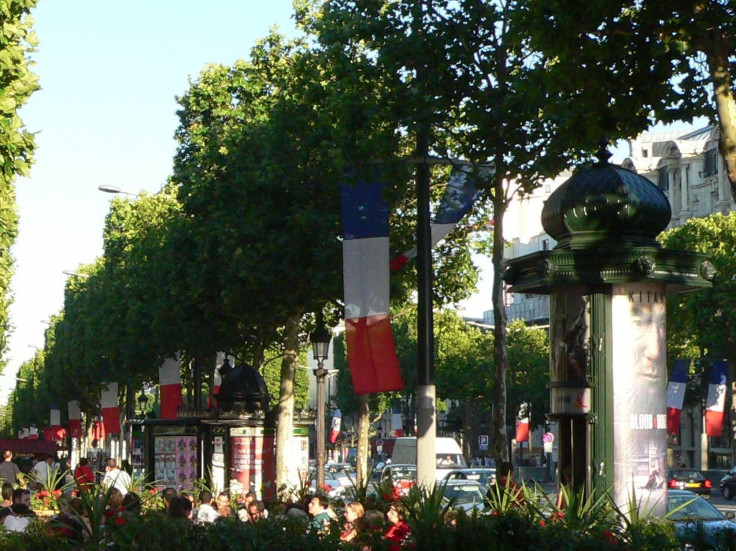Champs-Elysees Blues: Can The Fourteenth Of July Parade In Paris Survive France's Budget Cuts?

The July 14, or Bastille Day as it is called in the U.S., is one of the most important days in France's calendar, as it commemorates the 1790 Fête de la Fédération, which celebrated the formation of a constitutional monarchy and was itself held on the 1-year anniversary of the famous storming of La Bastille, the fortress-like prison that served as a symbol of the absolute monarchy of Louis XVI.
On July 14, a long and lavish military parade is held as a celebration of the country’s democratic institutions and to provide a feeling of national fraternity and unity. Held for years at the Lonchamps Racecourse in the Bois de Boulogne at Paris, the military parade moved to the Champs-Elysees in 1918 and always attracted huge crowds and VIPs along the route. However, as the country now struggles with a deep recession and high unemployment, the parade, reflecting the French public’s sense of anxiety and melancholia, will likely be less festive than in prior decades.
The budget for the parade, under the auspices of the Ministry of Defense, has been cut by 10 percent, or 500,000 euros ($650,000). (Last year’s parade had a price tag of about 4 million euros). Strangely, a spokesperson for the Defense Ministry denied that this lower expenditure is part of the austerity program the entire government has pushed through. "This year's parade was simply conceived as a transitional event from the one which will happen next year and will be a big parade commemorating the First and the Second World Wars," the spokesman told MetroNews.
However, the military governor of Paris, whose department is in charge of organizing the Bastille Day parade, confirmed that the defense forces are indeed seeking to cut costs this year. For example, the number of military vehicles in the parade will be reduced by almost one-third (30 percent), with a focus on jeeps and tanks and the display of more modern equipment. As for planes and helicopters, given the high cost of fuel, 10 percent fewer flying machines will patrol the skies over the Champs-Elysee this Sunday. In addition, invited guests from around the world -- often foreign heads of state -- who typically get the best “seats” in the house to watch the parade will find things a little cozier this Sunday as they will have to sit or stand nearer each other than in years past.
But some positive developments will also be showcased at this Sunday’s parade. French soldiers will be joined by their counterparts from Mali to celebrate France’s successful military intervention in West Africa to thwart an invasion by Islamic rebels earlier this year.
Separately, there is the issue of the deeply unpopular President Francois Hollande. Traditionally, on July 14, the leader of the country appears on television to answer questions about the state of the nation from two interviewers. Hollande’s predecessor, Nicolas Sarkozy, skipped this practice, but the socialist president is committed to participating. But he will have a tall order -- with the country’s economy entering into a recession and his approval ratings plunging, Hollande faces the unenviable task of having to convince the French people that brighter days are ahead.
© Copyright IBTimes 2024. All rights reserved.






















